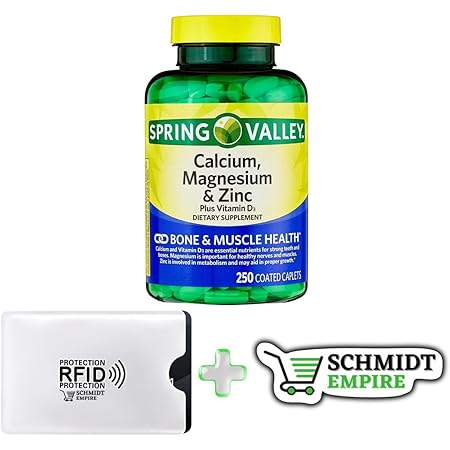Bone health is a critical aspect of overall well-being, especially as we age. While many people are aware of the importance of calcium for strong bones, fewer understand the complementary roles of zinc and vitamin D3. This article explores the synergistic effects of these two nutrients on bone health, providing insights into their functions, sources, and how they can be effectively incorporated into your diet.
The Importance of Bone Health

Bone health is essential for maintaining mobility, preventing fractures, and reducing the risk of osteoporosis, a condition characterized by weak and brittle bones. According to the National Osteoporosis Foundation, approximately 10 million Americans are currently affected by osteoporosis, and another 44 million have low bone density. As such, understanding the factors contributing to bone health is vital for prevention and treatment.
Understanding Zinc: The Essential Mineral

Zinc is an essential trace mineral that plays a vital role in numerous physiological processes. It is crucial for:
- Cell growth and division
- Immune function
- Protein synthesis
- Wound healing
- DNA synthesis
In the context of bone health, zinc is particularly important because it contributes to the activity of osteoblasts, the cells responsible for bone formation. A deficiency in zinc has been linked to impaired bone growth and increased risk of fractures.
Zinc Deficiency: A Hidden Dilemma
Despite its significance, zinc deficiency is relatively common. Factors contributing to this deficiency include:
- Poor dietary intake
- Gastrointestinal disorders
- Certain medications
Studies have shown that inadequate zinc levels can lead to a 50% increase in the risk of fractures, emphasizing the need for adequate zinc intake, especially among older adults.
Vitamin D3: The Bone-Building Vitamin
Vitamin D3, or cholecalciferol, is a fat-soluble vitamin that plays a crucial role in calcium absorption and bone health. Key functions of vitamin D3 include:
- Facilitating calcium absorption in the intestines
- Promoting bone mineralization
- Influencing the function of osteoblasts and osteoclasts (cells involved in bone remodeling)
A deficiency in vitamin D3 can lead to poor bone health, characterized by reduced bone density and an increased risk of fractures. According to research published in the Journal of Bone and Mineral Research, optimal levels of vitamin D3 can reduce the risk of fractures by up to 30%.
The Consequences of Vitamin D3 Deficiency

Vitamin D3 deficiency is widespread and can be attributed to factors such as:
- Limited sun exposure
- Age-related decline in skin synthesis
- Poor dietary intake
Symptoms of deficiency can include bone pain, muscle weakness, and an increased risk of falls. In severe cases, it can lead to conditions like rickets in children and osteomalacia in adults.
The Synergistic Effect of Zinc and Vitamin D3 on Bone Health

While both zinc and vitamin D3 are important individually for bone health, research indicates that they work synergistically to enhance bone density and strength. Here’s how:
- Calcium Regulation: Vitamin D3 enhances the intestinal absorption of calcium, while zinc plays a role in the metabolism of calcium, ensuring that bones receive sufficient mineral support.
- Bone Remodeling: Both nutrients are involved in the regulation of osteoblasts and osteoclasts, promoting healthy bone remodeling.
- Hormonal Balance: Zinc is essential for the synthesis of hormones like calcitonin, which helps regulate calcium levels in bones. Vitamin D3 also influences hormone levels that affect bone metabolism.
Incorporating Zinc and Vitamin D3 into Your Diet
To reap the benefits of zinc and vitamin D3 for bone health, it’s important to include dietary sources of both nutrients in your daily regimen. Here are some excellent sources:
Food Sources of Zinc

- Oysters (the richest source)
- Red meat (beef, lamb)
- Poultry (chicken, turkey)
- Beans and legumes (chickpeas, lentils)
- Nuts and seeds (pumpkin seeds, cashews)
Food Sources of Vitamin D3
- Fatty fish (salmon, mackerel, sardines)
- Cod liver oil
- Egg yolks
- Fortified foods (milk, orange juice, cereals)
- Sunlight exposure (15-30 minutes a few times a week)
Supplementing Zinc and Vitamin D3

In some cases, dietary sources alone may not provide adequate amounts of zinc and vitamin D3, particularly for older adults or those with specific medical conditions. In such cases, supplementation can be considered. However, it’s essential to consult with a healthcare provider before starting any new supplements, as excessive intake can lead to toxicity.
Recommended Dosages
- Zinc: The recommended dietary allowance (RDA) for zinc is 11 mg for men and 8 mg for women.
- Vitamin D3: The RDA for vitamin D is 600 IU for adults up to age 70 and 800 IU for those over 70.
Case Studies and Research Findings
Several studies have highlighted the positive effects of zinc and vitamin D3 on bone health:
- A study published in the Journal of Clinical Endocrinology & Metabolism found that individuals with higher levels of both zinc and vitamin D had better bone density compared to those with low levels.
- Research in the American Journal of Clinical Nutrition indicated that supplementation with both nutrients improved bone mineral density in postmenopausal women.
Conclusion: The Path to Stronger Bones
Zinc and vitamin D3 are indeed a dynamic duo for promoting bone health. Their synergistic effects on bone density, strength, and overall metabolic functions make them essential components of a healthy diet. By ensuring adequate intake through food sources or supplements, individuals can significantly reduce their risk of osteoporosis and fractures.
As we age, maintaining bone health becomes increasingly important. Therefore, incorporating zinc and vitamin D3 into our daily routine is a proactive step toward ensuring lifelong bone strength and vitality. Remember to consult healthcare professionals for personalized advice tailored to your specific needs.
In summary, a well-rounded approach that includes a balanced diet rich in zinc and vitamin D3, along with regular exercise and lifestyle modifications, can lead to improved bone health and overall well-being.




